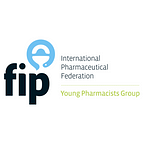“Pharmacists are Key in the Fight against Antimicrobial Resistance”
Prof. Buabeng on The Role of Pharmacists in The Fight against Antimicrobial Resistance.
By Ntani Suh Nsutebu
Professor Kwame Ohene Buabeng is a Clinical Pharmacologist and Associate Professor of Pharmacy Practice at Kwame Nkrumah University of Science and Technology (KNUST), Ghana. Currently he is the Head, Department of Pharmacy Practice in the Faculty of Pharmacy and Pharmaceutical Sciences KNUST. He is also the Head of the Division of Pharmaceutical Care, Ghana College of Pharmacists and Deputy Chair of National Policy/Multistakehoder Platform on Antimicrobial Resistance in Ghana. He is also an individual member of FIP. He is an external examiner and assessor at the University of Nairobi, Kenya and the University for Developmental Studies, Ghana. He has over 60 scientific publications, Technical reports and published abstracts for conference presentations to his credit.
Q: Ghana is among the first countries in the African region to develop a National Action Plan (NAP) on Antimicrobial Resistance, of which you were very much involved. What progress has been made so far in its implementation?
A: Six Technical Working Groups in line with the strategic objectives of the NAP (Awareness & Advocacy, Surveillance, Infection Prevention and Control, Antimicrobial Stewardship, Innovation and Research for AMR solutions & Governance) have been established to support the NAP implementation process, including M&E. I am the Lead for the TWG on stewardship. Focal persons have also been identified from the various sector ministries involved in the NAP implementation, as well as development partners like WHO, FAO and OIE. Capacity strengthening programs/ activities on major laboratories across the country is being done to strengthen surveillance and the generation of national data on antimicrobial resistance to inform other interventions to control resistance.
In partnership with WHO (TDR/SORT IT) various research projects to build capacity in operational research in AMR and generate evidence for policy decisions are on-going. Others areas include laboratory surveillance to generate resistance data, including that on the consumption of antimicrobials, and institutional capacity for Antimicrobial Stewardship & Infection Prevention and Control. Evidence from such studies will provide good guidance for policy/NAP implementation as well as monitoring and evaluation.
Q: According to the WHO addressing Antimicrobial resistance (AMR) requires a holistic and multisectoral approach referred to as One Health. What is the unique contribution of pharmacists in the fight against AMR?
A: Pharmacists have or should have good knowledge on the process and mechanisms of antimicrobial resistance, they have or should have expertise in Pharmacotherapy of infectious diseases and are able to advice on the selection, use, storage and monitoring of therapy for infectious diseases. They are critical in health promotion activities that create awareness on the challenge of antimicrobial resistance.
In their diversities, pharmacists may be involved in the manufacture and the supply chain management of anti-infectives to ensure that the integrity and quality of these medicines are maintained. They advise various IPC committees of which they may be members on appropriate products and disinfectants for use to minimize the acquisition and spread of infectious diseases. In Ghana various categories of Pharmacists, including policy expects, clinical pharmacists/pharmacologists, researchers etc were involved in diverse ways in the policy development process and also in the implementation. Pharmacists are therefore key in the fight against Antimicrobial resistance.
Q: In the most recent 79th FIP congress in Abu Dhabi, delegates highlighted the need for country specific interventions to promote appropriate use of antibiotics. What are the priority areas for LMICs like Ghana?
A: To institute antimicrobial stewardship schemes and activities in the Health system. To control indiscriminate access and use of antimicrobials. We also need to have functioning and effective surveillance systems for prompt identification and the tracking of AMR for action.
Q: AMR is recognized as an important problem globally; however there is limited data on its clinical and economic impact in LMICs. As an experienced researcher, what areas of focus do you advice pharmacists interested in getting more involved in research on AMR?
A: Antimicrobial stewardship, infection prevention, collecting drug use data and assessing patient outcomes on infectious disease management. There is a PhD student from KNUST and Ministry of Health Ghana is currently undertaking such a study and hopefully we will have data to answer appropriately such questions in future.
Q: What are your final words for young pharmacists in LMICs on their role in combatting AMR?
A: Young pharmacists should be actively involved as advocates, researchers, practitioners etc. in creating awareness. They should also be involved in health promotion and infectious disease prevention activities and stewardship programs that promotes safe and responsible use of antimicrobials.
